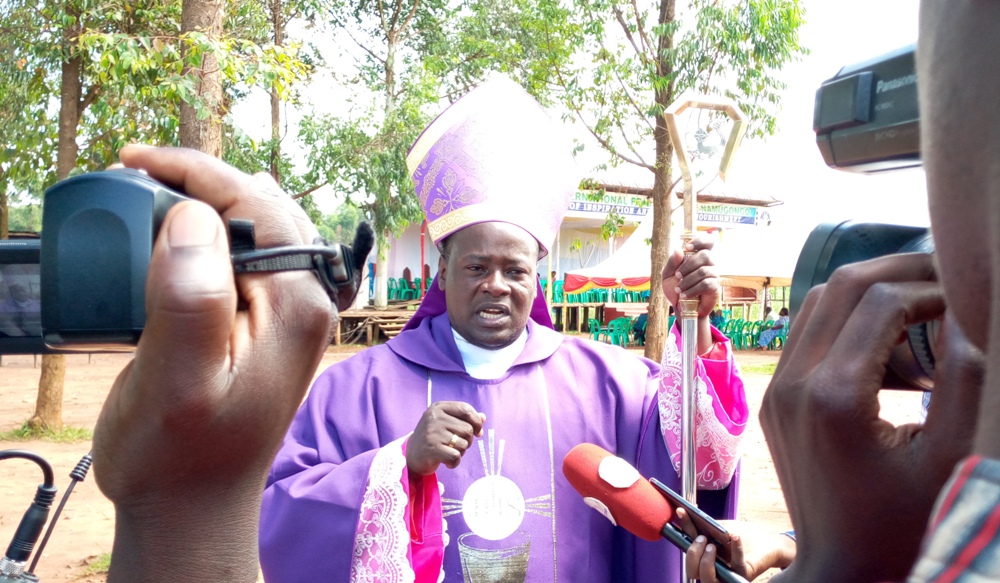
The presiding bishop of the Evangelical Orthodox Church in Uganda, Jacinto Kibuuka, has condemned in the strongest terms the recent acts of torture and violence carried out against opposition supporters by security forces ahead of the Kawempe North by-election, set for Thursday.
In a powerful homily delivered at the Mamre Prayer Centre in Namugongo, Janda, Kira Municipality, Wakiso District, Bishop Kibuuka voiced his concerns over the treatment of opposition supporters, particularly women, during political campaigns. He urged security forces to respect the rights and dignity of all Ugandans, stressing the importance of peaceful and fair elections.
Bishop Kibuuka specifically referenced the disturbing incidents involving several women who were tortured, beaten, and left severely injured, some of whom are still recovering in hospitals. These attacks occurred during the political processions of Elias Luyimbazi Nalukoola, the National Unity Platform (NUP) candidate for the Kawempe North by-election. The Bishop also noted the distressing incidents where journalists have become targets of security forces, further raising concerns over the safety of citizens engaged in democratic activities.
The bishop emphasized that elections should not be treated as a battle or war but as a peaceful process in which every citizen has a right to participate without fear. He questioned whether security personnel would be content if the women in their families, such as mothers, daughters, or wives, were subjected to similar violence.
Bishop Kibuuka appealed to all peace-loving Ugandans to unite in condemning such violent acts but also urged them to remain calm and composed in the face of adversity, calling for respect and fairness in the electoral process.
https://hoimapost.co.ug/bishop-jacinto-kibuuka-condemns-brutal-attacks-on-journalists/
https://hoimapost.co.ug/bishop-jacinto-kibuuka-condemns-brutal-attacks-on-journalists/ , hoimapost.co.ug
https://hoimapost.co.ug/bishop-jacinto-kibuuka-condemns-brutal-attacks-on-journalists/ , https://hoimapost.co.ug/bishop-jacinto-kibuuka-condemns-brutal-attacks-on-journalists/ ,
hoimapost.co.ug , https%3A%2F%2Fhoimapost.co.ug%2Fbishop-jacinto-kibuuka-condemns-brutal-attacks-on-journalists%2F